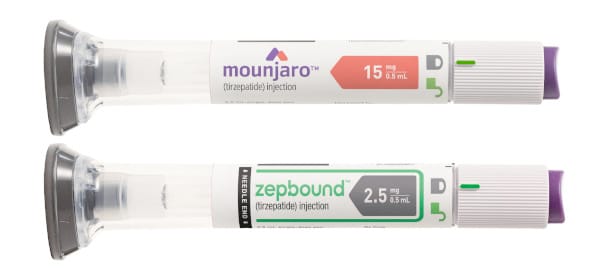Do GLP1 drugs increase the risk of cancer?

There have been worries in popular media about the possibility of GLP1 Receptor Agonists (drugs like Ozempic, Wegovy, Mounjaro, Zepbound and others) increasing the chance that people get cancer.
Check out our quick explainer
While it's hard to say what doesn't cause cancer, there has been research into the methods by which GLP1 drugs might cause cancer, which we can glean some knowledge and intuition from.

The research presented above is quite easy to read and follow, so we'd suggest reading it yourself, but for those who are busy, there are two main mechanisms by which GLP1s might encourage cells to become cancerous (or cancer to form):
- Acute Pancreatitis leading to pancreatic cancer
- Casuing an increase in cancerous cells in the Thyroid
The risk of Pancreatitis leading to Pancreatic Cancer
One well known adverse event (negative side effect) associated with use of GLP1 RAs is pancreatitis. The basic idea behind this risk is that acute pancreatitis (brought on by use of GLP1 RAs) could eventually cause pancreatic cancer.
While some studies were limited to animal models (as is often the case), there was no reasonable link found between GLP1 RAs and diagnosted acute pancreatitis amongst people who were treated with the GLP1 RA exenatide:
However, the rate of diagnosed acute pancreatitis was not different between patients who were treated with exenatide (as an example of a GLP-1 receptor agonist) or with sitagliptin (as an example of a DPP-4 inhibitor) and diabetic patients receiving other forms of antidiabetes treatments (21).
While it's possible the risk is slightly elevated (95% confidence interval cannot exclude that), there is certainly no clear evidence in favor of GLP1 RAs leading to pancreatitis (and by extension eventually pancreatic cancer).
Thyroid Abnormalities
Another way that GLP1 could increase cancer risk is by it's interaction with the thyroid. Forget where the thyroid is?

The research concluded that more information was needed, but there did not seem to be an immediate risk to human cells exposed to elevated levels of GLP1:
However, similar cell lines originating from human C cells can be exposed to up to a 10−6 molar concentration of GLP-1, exenatide, or liraglutide and not increase in level of cAMP or the secretion of calcitonin (6).
Thus, the conclusion seems to be justified that chronic exposure to clinically effective doses of GLP-1 receptor agonists does not lead to elevated calcitonin concentrations.
That said, the conclusion was that it's still best to exercise caution when prescribing GLP1 RAs to patients with risk of developing thyroid cancer.
So what?
At the end of the day, there still doesn't seem to be any concrete evidence pointing towards a definite significant increase in the probability of cancer when using GLP1 RAs.
While not every drug was tested (mostly Liraglutide and Exenatide were discussed), since GLP1 RAs work similarly, some projections might be reasonable to make.
As always, the best way to find out of a GLP1 RA regimen is right for you is to talk to your doctor or primary care physician or appropriate medical professional.






